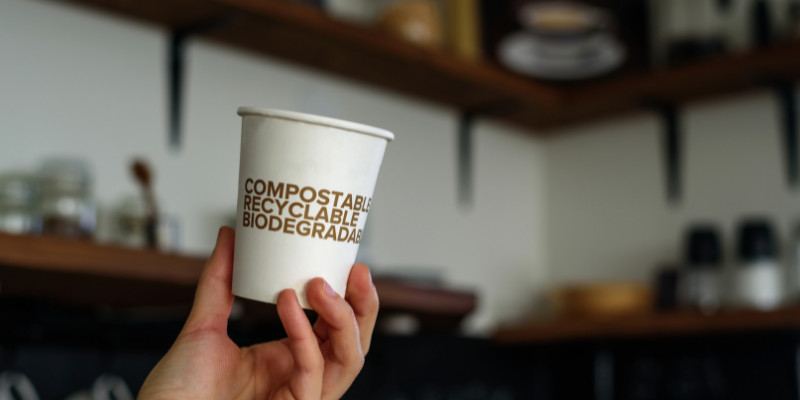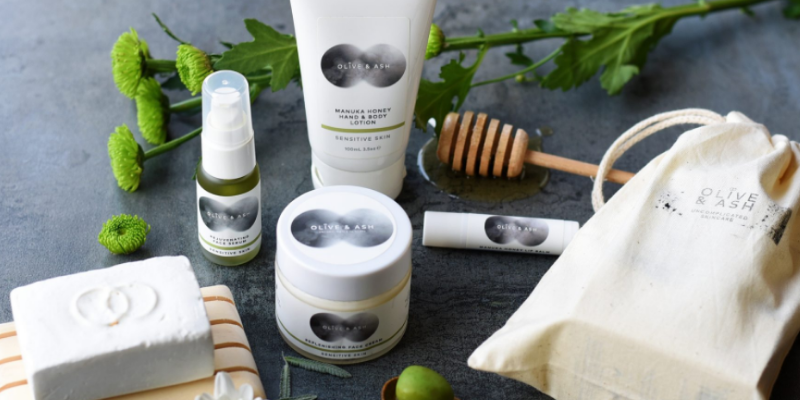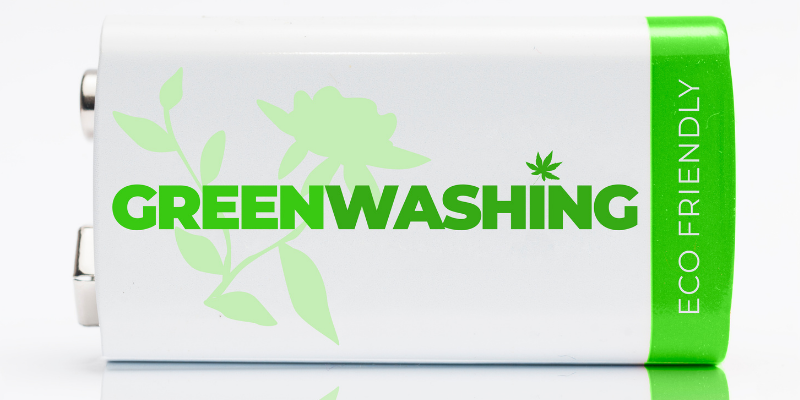With the growing awareness around the environmental impact of products, many of us are becoming increasingly selective about the products we choose.
While many companies are authentically founded and aligned with sustainable practices, this isn’t always the case.
“Going green” has become a booming business incentive for brands who simply want to capitalise on our shifting buying behaviour to favour brands, businesses, and products and prioritise a sustainable business model.
Greenwashing refers to organisations that promote their service or product as sustainable, ethical, or environmentally friendly only for marketing sake. Behind the shiny hype, these claims are hollow, token gestures of sustainability with no meaningful action.
Common greenwashing tactics to look out for
‘Part biodegradable’ Packaging
Australians create 67 million tonnes of waste each year with approximately 130,000 tonnes of Australian plastic ending up in waterways and oceans each year. The majority is single-use
plastic.
The push for corporations to adopt sustainable packaging practices has never been more urgent and there has been a huge shift to biodegradable packing materials. Biodegradable meaning the materials will be completely decomposed by bacteria or other living organisms.
Look out for packaging terms like ‘x% biodegradable’ and ‘part-biodegradable’.
Materials are either 100% biodegradable or not – terms like the above mean that fragments of the packaging won’t break down and will remain in nature.

Vague, generic wording
“Eco-friendly” and “green” are vague word choices that imply broad claims without explaining any specific environmental benefits. This doesn’t mean brands taking authentic action won’t use these claims but they will have the certification and necessary details to back up their green initiatives.
Using the words Organic and Natural
Many big brands have jumped onto the plant-based, natural movement to increase profits, changing their marketing and using terms like “natural” and “organic”. These words, when used in skincare or household products, are not regulated. Organic certification is not legally required for a product supplied in Australia to be described as organic.
To give ‘credibility’ to these claims, organisations simply add one or two natural or organic ingredients to their formulations they can slap those words on the label. Meanwhile, the rest of the formula is packed with ingredients that are not organic, chemicals, and those that haven’t been ethically sourced.
Free-from claims
Another example is labels that shout “free from SLS” or another commonly known irritant. While it’s true the formula is free from that chemical, it still contains a whole lot of others that are just
as bad for your health!
Overstated environment benefits
Companies may overstate the significance of an environmental benefit in their marketing. For example, claiming “now made with 50% more recyclable materials!” is an overstated claim if only 1 per cent of the material was recyclable in the first place.
According to the report, Green Marketing and the Australian Consumer Law such claims may “convey the false impression that the brand significantly increased the recyclability of a product.”
How to protect yourself from greenwashing
Read the product labels
You can protect yourself from greenwashing claims and make better product choices by reading the ingredient list on the product label. Don’t believe the hype on the front, flip the label over and
read what the product actually contains. Pay attention to the first 3 – 5 ingredients as these make up the bulk of the formulation.
Here’s a quick list of ingredients to avoid:
● Parabens: butylparaben, ethylparaben, isobutylparaben, methylparaben, or
propylparaben
● Butoxyethanol
● Sulfates: sodium lauryl sulfate and sodium laureth sulfate
● Phenols
● Palm oil
● Ammonia
● Ethanolamines. Including monoethanolamine (MEA), diethanolamine (DEA) and
triethanolamine (TEA)
Ask questions and get Googling
When in doubt about an organisation’s claims of its commitment to sustainability and health-friendly products, dig deeper. Contact customer service to ask for proof of any relevant
certification and google the company for background information and any complaints / reviews that may bring their authenticity into question.
If it’s hard to double-check claims or access proof of certifications easily, greenwashing is probably at play.
Report greenwashing
While greenwashing claims are not new to the ACCC, earlier this year, it was announced the ACCC would be cracking down on greenwashing by focusing on misleading Environmental,
Social and Governance (ESG) claims.
The ACCC, consumers and competitors can all take legal action if an environmental claim potentially breaches the Australian Consumer Law (ACL). You can find out more about making
a complaint to the ACCC here.

Olive & Ash sustainable practices
● Our ingredients are ethically sourced in Australia, and where possible, locally in
Tasmania.
● None of our products have ever, or will ever, contain palm oil
● All formulations are chemical-free. You will never find an ingredient that poses a health
risk, is carcinogenic or endocrine-disrupting
● We’re proud to donate 1% of our profits to the Orangutan Project
● We post orders in Australia Post compostable bags. When plastic, tape or stickers are
removed the satchels will begin to break down in a home compost bin, food organics bin,
or in a kerbside landfill bin
● Cruelty-free
If you have any questions about our practices and products, please drop me an email!
Deb x
References
https://www.accc.gov.au/consumers/groceries/organic-claims
https://www.accc.gov.au/speech/acccs-enforcement-and-compliance-policy-update-2022-23
https://www.minterellison.com/articles/acccs-priorities-the-green-light-to-target-greenwashing
